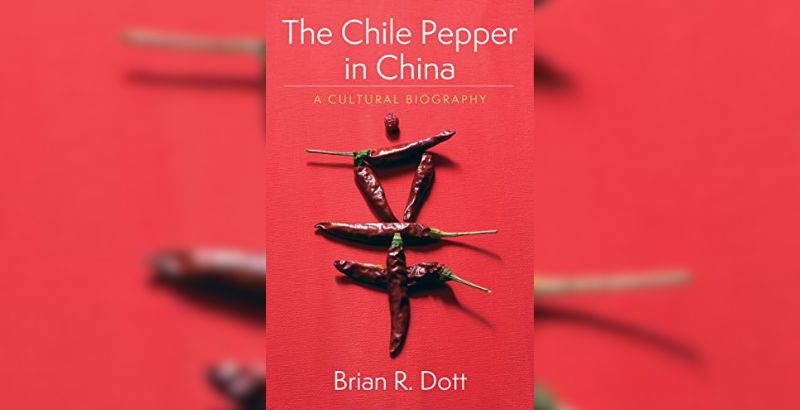
The Chile Pepper in China by Brian R. Dott is a non-fiction history of how chile peppers, a plant native to the Americas, became ubiquitous in China. Dott, an associate professor at Whitman College leads readers through the complicated and sometimes unclear history of how this spicy fruit came to hold such significance in Chinese cuisine, medicine, culture, and politics.
It is important to note that The Chile Pepper in China is an academic, non-fiction book. The book therefore spends as much time walking the reader through its methodology and sources as it does telling the chile pepper’s actual history. While much of those parts of the book are equally interesting, not all of it will feel germane to the casual reader. This is by no means a negative attribute of the book, especially since these walkthroughs are well-researched and well-explained. In fact, The Chile Pepper in China is a book that can be easily understood and enjoyed by casual readers, something not all academic non-fiction books can say.
For anybody with interests in learning about non-America cooking, medicine, or even language, The Chile Pepper in China is an excellent resource for learning about an array of Chinese practices. Dott explains how Chinese systems for classifying foods and medicines were intertwined with language in ways that are easily understood in the English language for an American not well acquainted with the concepts. I do wish that some of the explanations of chile peppers’ use as medicine were discussed in a modern context. There was ample discussion of how capsaicin, the chemical that makes chilis spicey, was used as preventatives and treatments for many types of illness. I was just left so curious about the ways Dott explained food and medicine as virtually one and the same that I found myself wanting to understand if its uses have evolved since the 1600s.
The way the book breaks down Chinese words and phrases is also really compelling. The book is very careful to make clear that China is not a singular culture and that in different groups and regions across time periods people have held different and sometimes contradictory beliefs. I enjoyed seeing how the word for and words used to describe chile peppers evolved and eventually landed on “the foreign pepper.”
Beyond being a well-researched history, The Chile Pepper in China does an excellent job demonstrating how cultural symbols, even when recognizable by an entire population like the chile pepper is, do not always hold the same symbolic meanings for everybody. The book’s latter chapters demonstrate this in both classic Chinese literature and in contemporary politics. For example, the chile represents the trope of the “spicy girl,” a somewhat aspirational and attractive quality of being bold, passionate, and firey. Meanwhile, the pepper has been used as a warning against that very inversion of traditional gender roles.In more recent times, chile peppers in China have come to be associated with revolution and even Mao himself.
I particularly appreciate The Chile Pepper in China as a reminder that culture is constantly evolving, its symbols are not uniformly interpreted, and its origins are rarely what our society wants us to believe. The positive, harmless foray into developing culturally can be applied to American cultural symbols just the same. Whether we are talking about popular films or controversial political symbols, The Chile Pepper in China is an excellent and interesting reminder that just because something is ubiquitous does not mean it’s universal. Culture is neither created in a vacuum nor suspended in the time of its inception.
The chile pepper was not native to China until one day, it was, and as Dott shows in The Chile Pepper in China, the fruit has meant different things to different people over the centuries and probably will continue to mean new things as time goes on. While I wish The Chile Pepper in China had even more examples of the spicy plant’s cultural importance in China rather than repeating the same information often, it is an excellent history and an even greater reminder of how culture is ever-changing and not everybody experiences culture the same as one another.
The Chile Pepper in China is available now.
The Chile Pepper in China
TL;DR
While I wish The Chile Pepper in China had even more examples of the spicy plant’s cultural importance in China rather than repeating the same information often, it is an excellent history and an even greater reminder of how culture is ever-changing and not everybody experiences culture the same as one another.






